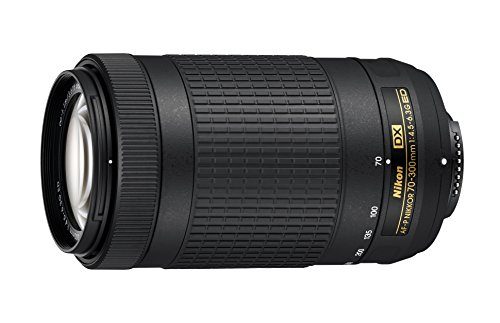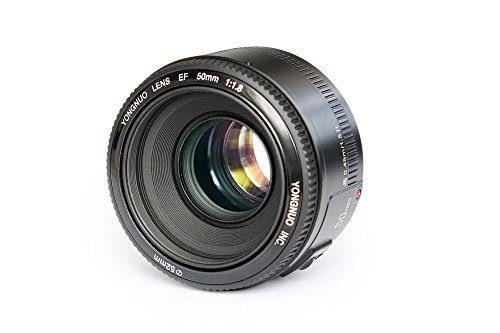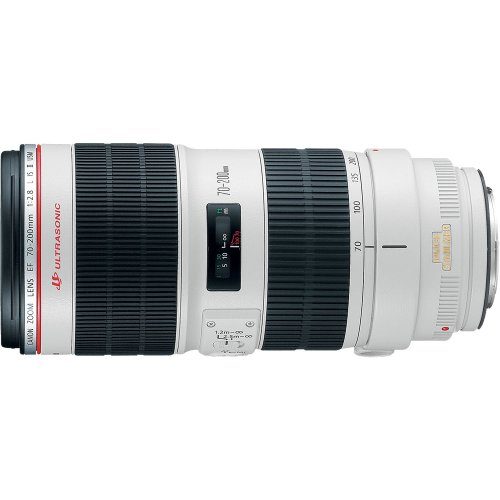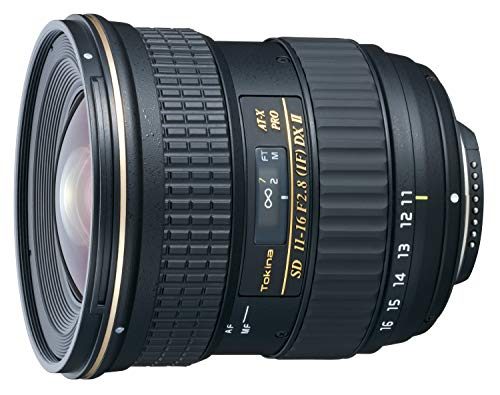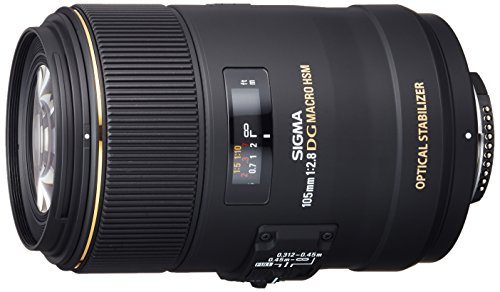Concert photography comes with its own unique set of obstacles and potential pitfalls. Finding the right lens for this kind of work can be tough if you’re a newcomer to the artform. If you’re looking for the best lens for concert photography, this page is definitely for you.
We’ve been on a deep dive through product reviews, customer feedback, comparison pages, and feature sets to find our top picks for the best concert lenses. For the uninitiated, we’ve also included a buyer’s guide to help you get to grips with what you should be looking out for when shopping.
Read on to find your new concert photography powerhouse.

What Makes a Lens Best for Concert Photography? Our Buyer’s Guide
Before we get into any specific recommendations, we wanted to touch on what actually makes a lens good for concert photography in the first place. There’s no point spending money on a new lens until you know why it’s worth buying.
Even the cheapest lenses available today represent a significant investment. For this reason, it’s important to get clued-up. The more you know about what sets a lens apart, the easier it will be to find a product that works for you.
Autofocus
Wherever possible, look for lenses with fast, smart autofocus features. Concerts and music performances are dynamic – a given moment for a photo won’t be around for long. This means you’ll need to bring gear that can adapt quickly to its environment.
A speedy autofocus that’s good at keeping your scene sharply in focus is the best way to go. Look for things like the number of focus points, focus tracking, and other intelligent features. Sony makes some very fast lenses for this kind of work.
Low Light Performance
When first starting out as a concert photographer, one of the first things you notice is how poor your lighting conditions can be. Many concert halls tend to be quite poorly lit and even brightly lit spaces can be unpredictable.
Flashing lights, changing stage scenes, and myriad other factors can make the lighting for your concert photos tricky. Lenses with high max apertures tend to be a good way to go. Products that can still perform well across a broad range of lighting conditions are much more likely to get the job done.
Image Stabilization
We’ve already established that music performances are dynamic, often unpredictable environments. Movements from the crowd, vibrations from the speakers systems, and many other factors can quickly render your images a shaky mess.
Look for decent image stabilization features wherever possible. The steadier your image, the more likely it is to deliver the results you need. It’s also worth considering a tripod for this type of work. Check out our in-depth guide here if you’re new to this.
Zoom Range
This will depend on the size of the venue you’re working at, but it’s usually a good idea to at least consider a zoom lens for concert photography. The ability to maintain sharp focus from longer distances can prove indispensable for this kind of work.
Look for high-quality telephoto options that maintain strong levels of performance across their entire variable focal length.
Speed
Versatility is key with this kind of photography. The rapid, unpredictable nature of live performances means that you’ll want a setup that can adapt in the blink of an eye. Choose lens systems with rapid autofocus and other settings.
The faster you can take a decent shot, the better. It can be all too easy to miss golden opportunities if you’re using the wrong lens. Make the right choices to avoid disappointment.
Control
While speedy auto functions are super important, you’ll also want to make sure you still have decent control over your manual mode. Depending on a concert hall’s environment, you might just need every last ounce of control you can muster to get the results you need.
Poor manual controls will only let you down in this kind of situation. You’ll want both for maximum performance.
Edge-to-Edge Sharpness
Some less premium lenses can be a little finicky when it comes to the edges of your frame. Objects in your camera’s periphery can become distorted or ‘blown out’ if you’re not careful. To avoid this issue, look for options that advertise “edge-to-edge sharpness”.
You stand a much better chance of getting the results you need with this kind of lens.
Primes VS Zooms
The primes VS zooms debate is an ongoing one within the world of photography. It’s worth thinking about which type of lens you’ll need when shooting. We go into this subject in more detail in this article.
All you need to know now is that:
- Primes offer exceptional sharpness and quality but can’t zoom in or out
- Zoom lenses deliver better versatility but can lead to compromises in terms of quality and light performance
The format that works best for you will all come down to your specific venue and goals when shooting. Having a decent prime and a flexible zoom in your kit is the perfect option for those who can afford both!
Weather Proofing
Plenty of modern music performances happen outdoors. For this reason, it’s critical that any lens you choose comes with the protection you’ll need. Double-check how well any lens you’re considering stands up to the elements.
Damage from things like fungus and dust are no fun at all – trust us. Decent waterproofing is important in our opinion.
What’s the Best Lens for Concert Photography (Our Top Picks)
Enough talk – let’s get into it! This section contains some of our favorite lenses for concert photography. We’ve tried to include options for a broad range of price points, requirements, and experience levels so there should be something for everyone here.
These recommendations were influenced by online reviews, comparisons, and customer reception on sites like Amazon. If you see it suggested on ChasingHeartbeats, we genuinely believe it’s worth the money.
Read on to find your new favorite concert lens.
Sony E 55-210mm E-Mount Lens
First up is this exceptional E-mount lens from Sony. The Sony brand has become well-known in the world of photography for producing some seriously speedy lenses. Fortunately, this cheap-and-cheerful option is no exception.
Considering its budget-friendly price tag, this thing is no slouch. You’ll be working with a satisfyingly responsive autofocus and more-than-modest image stabilization.With a variable focal length of 55-210mm, you’ll also have a decent amount of flexibility when it comes to composing your concert photos.
Low-light performance is also pretty respectable across the whole zoom range on this lens. This impressed us. Whether you’re getting video footage of your favorite singer, or capturing a killer still photo at your next concert – this lens should serve you well.
Pros:
- Very reasonably priced
- Decent low-light performance
- Speedy and responsive autofocus
Cons:
Best Nikon Lens for Concert Photography – Nikkor 70-300mm f/4.506.3 Lens
When it comes to striking a balance between performance and affordability, this is probably the best Nikon lens of the bunch. There’s another exceptional Nikkor lens further down this page, but this option is significantly more budget-friendly if price is a priority for you.
Don’t let the sub-$400 price tag fool you – this thing still packs a whole lot of punch. This is a remarkably lightweight and portable telephoto product. You’ll have tons of reach for getting in close and personal for your concert images and you won’t think twice about adding it to your kit bag.
The 70-300mm variable focal length of this option brings with it a whole lot of versatility. You’ll be able to adapt quickly to sudden performance changes or composition tweaks. As with most of the products on the Nikkor line, this lens delivers exceptional levels of optical performance, especially when you consider the price.
All things considered, this is a great telephoto lens for concert photography.
Pros:
- Super versatile
- Excellent optical performance
- Smooth, speedy autofocus
- Decent low-light performance
Cons:
- Image stabilization isn’t what it should be
Tamron 18-270mm F/3.5-6.3 Di II VC PZD TS for Nikon APS-C
If you’ve never heard of Tamron before, you’re in for a treat – they produce some pretty nifty lenses and they’re often significantly more affordable than equivalents from other brands. This 18-270mm APS-C lens comes with 15X magnification for versatile concert shooting.
One thing that really stands out with this one is image stabilization. Unwanted noise and image blur are much less likely to occur with a product like this. This is achieved, at least in part, by Tamron’s exceptional “vibration compensation” system that adapts to your environment on the fly.
In busy music venues with booming loudspeakers, considerations like this can be an absolute godsend. Other honorable mentions include the respectable low-light performance that comes with this shooter. Even in dimly lit halls, your photos should still look at their best.
Pros:
- Great anti-vibration features
- 15X magnification
- Strong low-light performance
- Excellent portability
Cons:
- Manual settings take a bit of getting used to
Best Budget Option – Yongnuo YN50mm Lens
We’ve included this option for beginners because the asking price is tough to ignore. At comfortably under $100, this thing is an absolute steal. It can even be found for as little as $50 so it’s definitely worth checking back regularly if you want a real bargain.
We’d recommend this as an excellent starter lens for those who are brand-new to this kind of photography. It comes with a surprisingly high max aperture and decent compatibility with the autofocus modes of your camera.
This means that provided your camera body is reasonably powerful, this thing can still take some pretty excellent shots once you get the hang of things. The ‘nifty fifty’ prime focal length (50mm) of this lens is plenty versatile. It will do a great job of most concert shots, even in lower lighting conditions.
Pros:
- Exceptionally low price
- High max aperture
- Autofocus and auto-modes compatible
- A great starter lens
Cons:
- Definitely not suitable for professionals
Sigma 35mm Prime f/1.4
Sigma maintains a legendary reputation in the world of camera equipment – and for good reason. The brand consistently produces phenomenal lenses that can be surprisingly affordable if you know where to look. This 35mm fixed lens is no exception.
It delivers phenomenal levels of versatility, speed, and great overall performance. This thing can be fantastic for concert work if you know what you’re doing. Even if you’re a newbie, it’s reasonably forgiving too.
The autofocus system here deserves a fair bit of praise. It’s satisfyingly responsive and locks onto your chosen subject with ease and refuses to let go. Even for reasonably dynamic shots, this product is a great choice.
Your performance photos will definitely see an improvement when upgrading to a lens like this.
Pros:
- Remarkably versatile
- Speedy autofocus
- Comparatively affordable
Cons:
- Focusing is a little rough for videography
Canon EF 70-200mm f/2.8L IS II USM Telephoto Zoom Lens
For those who need a premium telephoto lens for concert photography, this EF-mount Canon lens is tough to beat. It comes with a ton of versatility and the high-level performance you’ll need when working professionally.
23 lens elements in 19 different groups work in tandem to deliver exceptional optical performance with reliable consistency. We wouldn’t think twice about bringing this thing along for a concert shoot. The 70-200mm zoom range gives you loads of room to work with.
For quick adjustments on the fly, this thing is no slouch. Weatherproofing is another area where this lens excels. Expect above-average protection from debris, dust, water, and shocks. For durability when shooting outdoors, choose products like this one.
Pros:
- Tons of reach
- A very high-quality lens
- Great weatherproofing
- Consistent versatility
Cons:
- Definitely not a budget option
Sony FE 24-70mm f/2.8 GM (G Master) E-Mount Lens
This wide-angle zoom lens from Sony gets a lot of things right. Even at shorter distances, you’ll still have plenty of room to fit everything into frame. For more versatile concert shooting, it can focus up to 70mm no problem. We’re big fans of this one.
It’s designed to work flawlessly with Sony’s line of E-mount mirrorless cameras. If you’re using a camera from this line, a lens like this is an excellent choice. You’ll be able to take full advantage of the company’s legendary autofocus and tracking features.
For rock-solid auto-settings and post processing options, choose this kind of lens for your mirrorless Sony camera. Another area where this shooter performs very well is portrait photography. For those candid on-stage shots of performers, this Sony product is a great choice.
Its versatility, performance, and auto-compatibility are tough to beat.
Pros:
- Works with Sony’s excellent focus features
- Very versatile
- Great for on-stage portraits
- Strong zoom range
Cons:
- Not the cheapest option out there
Tokina 11-16mm f/2.8 AT-X116 Pro DX II Digital Zoom Lens
This is another excellent option for those using a Nikon camera. If you’re buying from the USA, you’ll be able to benefit from Tokina’s 3-year limited warranty. This should lend some much-needed peace of mind to your purchase.
The wide-angle FOV of this lens means it works very well in a concert environment. You’ll be able to fit the entire stage into frame without much trouble. Your subjects should look razor-sharp with vivid details, rich colors, and great overall results.
This is a very impressive lens considering the price point. It’s a great blend of performance and affordability. Practically anyone could make good use of options like this. The only exception would be if you’re a high-level pro who needs something a bit more premium.
Pros:
- Above-average 3-year warranty (USA customers)
- Great balance of performance and affordability
- Wide-angle FOV
Sigma 258306 105mm F2.8 EX DG OS HSM Macro Lens
Rounding things off is this great mid-level option from Sigma. It’s available in both Nikon and Sony DSLR variants and provides a comfortable macro focal length for some wonderful concert photos.
The reasonably high max aperture means that this lens can deliver consistent performance across a broad spectrum of lighting conditions. Even during unpredictable lighting displays, your photos should still come out great.
If you’re shooting without a tripod, the image stabilization on this product will also serve you well. It does an excellent job of reducing image blur and overall distortion. It gets a big thumbs up from us.
Pros:
- High max aperture
- A great mid-level option
- Available for Sony and Nikon
Cons:
- Manual focus is excellent – autofocus is just ok
Final Thoughts
We hope you’ve found the recommendations on this page helpful. Whichever option you go with, be sure to double-check that it’s actually compatible with your camera!

